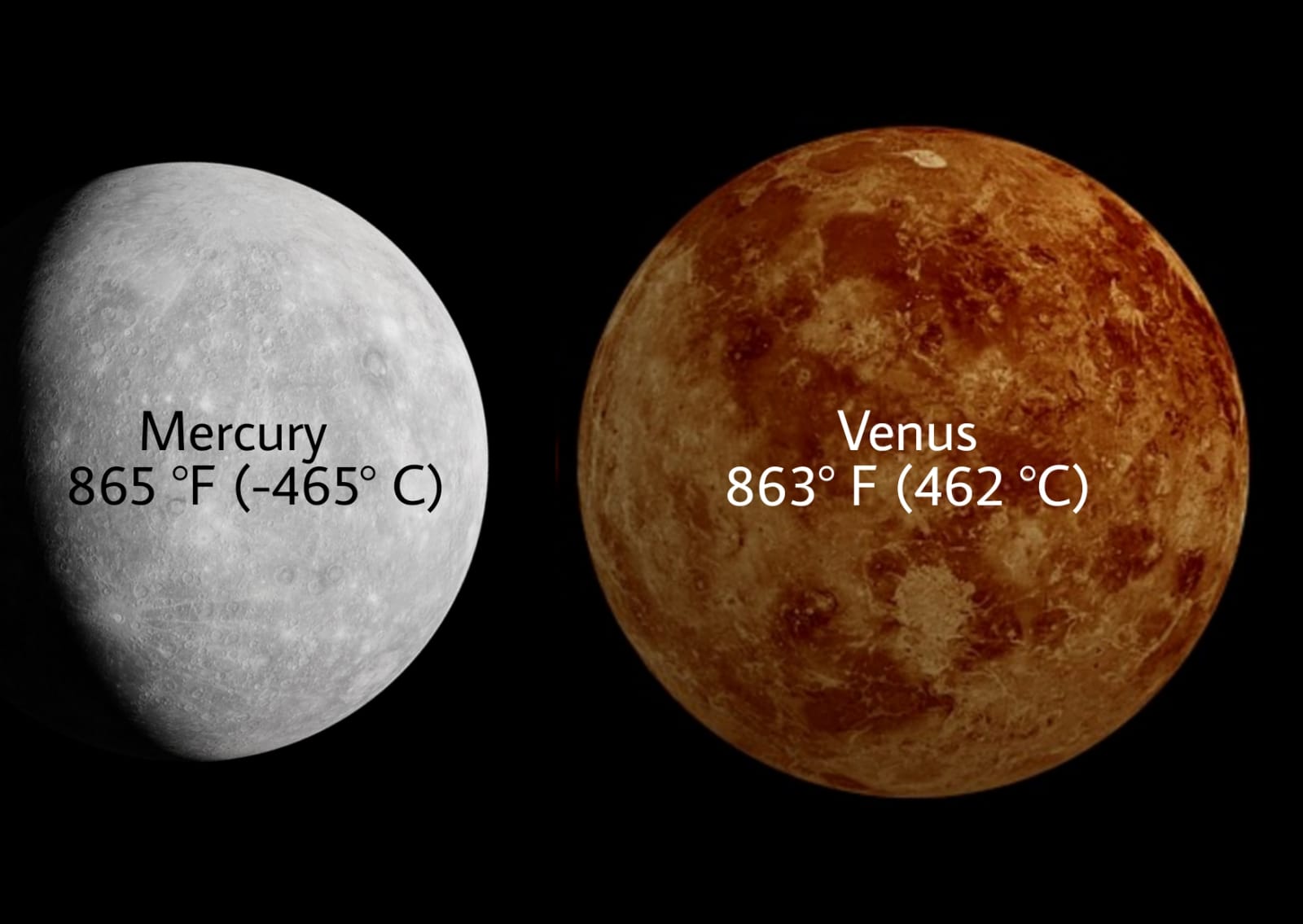Because Venus has a far thicker atmosphere than Mercury, it is hotter. The greenhouse effect refers to the heat trapped by the weather. If Venus did not have an atmosphere, its surface temperature would be -128 degrees Fahrenheit, far lower than Mercury’s average temperature of 333 degrees Fahrenheit despite the fact that Mercury is significantly closer to the Sun? The dense carbon dioxide atmosphere of Venus has prevented heat received from sunlight from being re-emitted into space.
In this article, we are going to know more about venus has a higher average Surface temperature than Mercury Why? And many more questions So let’s dive straight into the matter!
Why Venus is hottest planet not Mercury?
Why is Venus our solar system’s hottest planet? Despite being the closest planet to the Sun, Venus is the hottest planet in our solar system. This is due to the fact that Mercury has essentially no atmosphere, but Venus has a very thick atmosphere. On Mercury, this causes all of the heat to be reflected back into space.
How hot is Venus?
The temperature increase of Venus is about 464 °C (737 K, 867 °F), which is hot enough to cause lead. Venus has a dense atmosphere composed primarily of carbon dioxide (CO2), which traps heat. This is a runaway greenhouse effect, and it is the cause of the planet’s extreme heat. Venus is the hottest planet in the Solar System, with a surface temperature that is greater than Mercury’s. That’s why Venus is hotter than mercury.
Related: Which Countries have explored Venus?
What caused Venus’s average surface temperature to be higher?
Venus is so hot because it is surrounded by an extremely thick atmosphere that is 100 times thicker than our atmosphere here on Earth. The surface of Venus is heated when sunlight travels through the atmosphere.
Survey: Why is Venus’s surface temperate higher than Mercury’s?
Why is Venus’s atmosphere hotter than Mercury’s, despite the fact that Mercury is considerably closer to the Sun? The dense carbon dioxide atmosphere of Venus has prevented heat received from sunlight from being re-emitted into space.
Conclusion
Mercury is the smallest and most distant planet from the sun. Because of its location within the solar system, it is only natural for people to conceive of it as the hottest planet.
As a result, the extraordinarily high heat energy emitted by the sun on Mercury’s surface is rapidly dissipated into space, with essentially little heat contained within its atmosphere.
The Venusian atmosphere, which is mainly carbon dioxide, absorbs heat from the surface while enabling heat from the sun to escape. This results in extremely high temperatures on the planet Venus’s surface.
Mercury might have easily become hotter than Venus due to its closeness, but the atmosphere and its contents have had a role in determining the surface temperatures of these two planets.
Lots more information here:

